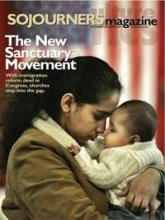Religious groups are continuously negotiating between what they perceive as fixed elements of their religious character and a myriad of dynamic pressures—including periods of rapid social change, competing or even hostile groups and ideas, and from time to time fundamental philosophical shifts in how we interpret and understand the world.
An Emergent Manifesto of Hope, a collection of essays from 27 different Christian voices, provides a polyphonic snapshot of one such ongoing conversation—that of the emerging church—concerned with our current period of cultural, theological, and philosophical change. "Church" is actually a misnomer, as this group lacks a unifying systematic theology or denominational identifier. Those most often identified with the emerging church, including many of this book's writers, prefer other descriptors, such as the emerging conversation, a generative friendship, a missional collaboration, or the pilgrimage on the Jesus Way. More poetically, one contributor sees the emerging conversation as "an unfolding piece of artwork"; it is "a studio for sketching, a place of freedom and divergence."
Despite differences over self-identification, backgrounds, ecclesiologies, and theologies, contributors such as Brian McLaren, Heather Kirk-Davidoff, Rodolpho Carrasco, and Sally Morgenthaler, among others, share an underlying belief that the world we live in has fundamentally changed and that these changes have profound implications for the "Christ-message" and our understanding of "the present agenda of God in this world." These emerging conversationalists illustrate the myriad ways in which Christians are forging what it means to be faithful in the 21st century.
For those new to this conversation, An Emergent Manifesto of Hope is a good place to start. It's a worthy primer, varied and accessible.
Read the Full Article
